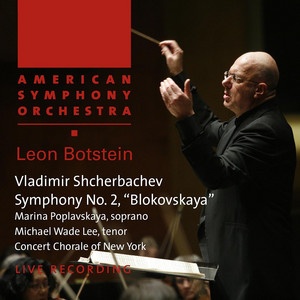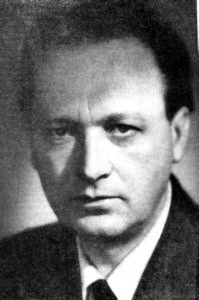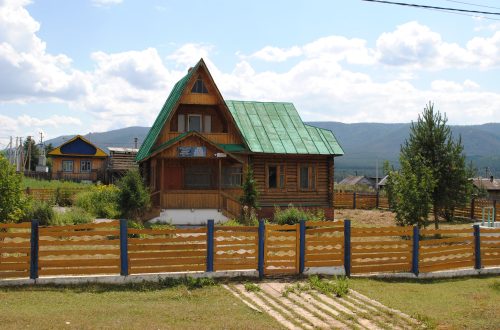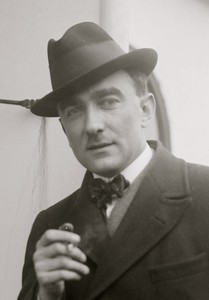
Vladimir Vladimirovich Shcherbachev |
Vladimir Shcherbachev
The name of VV Shcherbachev is closely connected with the musical culture of Petrograd-Leningrad. Shcherbachev went into her history as an excellent musician, an outstanding public figure, an excellent teacher, a talented and serious composer. His best works are distinguished by the fullness of feelings, ease of expression, clarity and plasticity of form.
Vladimir Vladimirovich Shcherbachev Born January 25, 1889 in Warsaw, in the family of an army officer. His childhood was difficult, overshadowed by the early death of his mother and the incurable illness of his father. His family was far from music, but the boy had a spontaneous attraction to it very early. He willingly improvised on the piano, read notes well from a sheet, indiscriminately absorbed random musical impressions. In the fall of 1906, Shcherbachev entered the law faculty of St. Petersburg University, and the following year, he entered the conservatory, studying piano and composition. In 1914, the young musician graduated from the conservatory. By this time he was the author of romances, piano sonatas and suites, symphonic works, including the First Symphony.
With the outbreak of World War II, Shcherbachev was called up for military service, which he took place in the Kiev Infantry School, in the Lithuanian Regiment, and then in the Petrograd Automobile Company. He met the Great October Socialist Revolution with enthusiasm, for a long time he was the chairman of the divisional soldier’s court, which, according to him, became the “beginning and school” of his social activities.
In subsequent years, Shcherbachev worked in the music department of the People’s Commissariat for Education, taught in schools, actively participated in the activities of the Institute of Extracurricular Education, the Petrograd Union of Rabis, and the Institute of Art History. In 1928, Shcherbachev became a professor at the Leningrad Conservatory and remained associated with it until the last years of his life. In 1926, he headed the theoretical and composition departments of the newly opened Central Music College, where among his students were B. Arapov, V. Voloshinov, V. Zhelobinsky, A. Zhivotov, Yu. Kochurov, G. Popov, V. Pushkov, V. Tomilin.
In 1930, Shcherbachev was invited to teach in Tbilisi, where he took an active part in the training of national personnel. Upon his return to Leningrad, he became an active member of the Union of Composers, and since 1935 – its chairman. The composer spends the years of the Great Patriotic War in evacuation, in different cities of Siberia, and returning to Leningrad, he continues his active musical, social and teaching activities. Shcherbachev died on March 5, 1952.
The creative heritage of the composer is extensive and varied. He wrote five symphonies (1913, 1922-1926, 1926-1931, 1932-1935, 1942-1948), romances to verses by K. Balmont, A. Blok, V. Mayakovsky and other poets, two sonatas for piano, plays “Vega ”, “Fairy Tale” and “Procession” for symphony orchestra, piano suites, music for the films “Thunderstorm”, “Peter I”, “Baltic”, “Far Village”, “Composer Glinka”, scenes for the unfinished opera “Anna Kolosova” , musical comedy “Tobacco Captain” (1942-1950), music for the dramatic performances “Commander Suvorov” and “The Great Sovereign”, the music of the national anthem of the RSFSR.
L. Mikheeva, A. Orelovich





